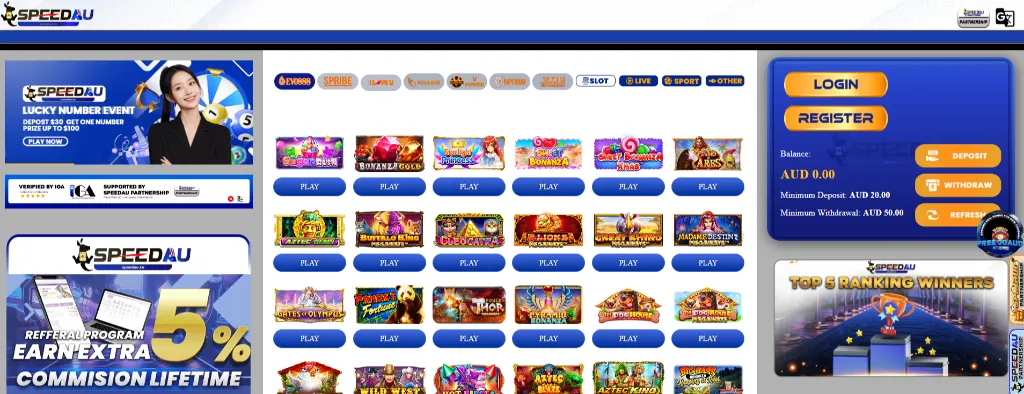Thrill-Seekers' Delight: Exploring the Rise of Fast-Paced Entertainment Options

Introduction
In a world where every second counts and the demand for instant gratification reaches new heights, the landscape of entertainment has transformed dramatically. Gone are the days of waiting for weekly TV episodes or spending hours in a movie theater. Today, consumers crave quick, thrilling experiences that match the rapid pace of their lives. This shift has ushered in a new era of fast-paced entertainment options, from streaming services that offer immediate access to thousands of shows and movies to online games that transport players into exhilarating worlds within seconds. Let's dive into how these swift entertainment forms cater to the adrenaline junkies of the digital age, and explore why these high-speed indulgences are becoming the norm across the globe.
As we embark on this exploration, it's important to recognize the role of advanced technology and changing consumer behaviors in shaping this trend. The rise of speed-au-pokies.com boldly exemplifies this evolution, offering a platform where the action is not just fast—it's instantaneous, delivering excitement at the click of a button.
The Psychology of Speed in Entertainment
Humans are inherently drawn to activities that stimulate the senses and provoke emotional responses quickly. This psychological bent towards fast-paced entertainment is deeply rooted in our desire for immediate satisfaction and the thrill of the unexpected. Consider the surging popularity of video games that require quick reflexes and decision-making. These games not only provide a sense of achievement but also offer a temporary escape from the mundane aspects of daily life.
Fast-paced entertainment taps into basic human instincts—such as the fight-or-flight response—triggering adrenaline rushes that are both exhilarating and addictive. This craving for speed and instantaneity is mirrored in how we consume media today, favoring quick snippets of information and rapid-fire visuals over prolonged narratives. This section will delve into:
- The role of neurotransmitters like dopamine in driving the popularity of quick entertainment fixes.
- How the craving for rapid engagement is reshaping entertainment consumption patterns across different demographics.
Technological Advances Driving Faster Entertainment
The acceleration of entertainment experiences owes much to the leaps in technology that have made it possible to stream, download, and engage with content at unprecedented speeds. High-speed internet, powerful smartphones, and sophisticated software algorithms all play crucial roles in delivering entertainment that keeps pace with our quickest impulses.
From the rapid loading times of Netflix shows to the seamless integration of real-time multiplayer gaming, technology ensures that users can dive into their chosen form of entertainment without delay. Innovations such as cloud gaming platforms exemplify how technology continues to push the boundaries, allowing gamers to play high-quality games on any device without the need for downloads or high-end hardware. This segment will cover:
- The impact of 5G technology on streaming and gaming experiences.
- Examples of platforms that integrate cutting-edge technology to offer faster, more responsive entertainment solutions.
Comparative Analysis of Traditional vs. Rapid Entertainment Formats
The shift from traditional to rapid entertainment formats is not just about speed; it's also about the changing preferences and lifestyles of global audiences. While traditional forms such as live theater and cinema continue to hold their charm, the scales are tipping in favor of formats that offer immediacy and flexibility.
This comparative analysis will explore how traditional entertainment mediums are adapting to the age of instant access, and what this means for the future of entertainment. Topics will include:
- A look at how traditional TV networks are incorporating on-demand features to retain viewers.
- The evolution of live sports broadcasting to include interactive, real-time elements to cater to a more dynamic audience.
Implications for the Future of Entertainment
As we hurtle towards a future dominated by instant digital gratification, the entertainment industry stands at a crossroads. Will the allure of speed redefine what we consider entertaining, or will there be a renewed appreciation for the slow and steady?
This forward-looking section will discuss potential trends and technologies that could shape the next decade of entertainment, such as virtual reality concerts and AI-driven personalized gaming experiences. We'll also consider the challenges that lie ahead, such as the potential for digital overload and the need for balance between fast and slow entertainment options.
Conclusion
The rise of fast-paced entertainment options marks a significant shift in how we consume media and interact with technology. As we adapt to these rapid changes, it becomes crucial to understand not just the mechanics of fast entertainment but also its impact on our culture and psychology. Whether we're streaming the latest blockbuster or competing in a virtual race, the need for speed in our entertainment choices is more pronounced than ever, reflecting our broader societal shifts towards efficiency and immediacy. As we continue to navigate this fast-evolving landscape, one thing remains clear: the thrill of speed is here to stay, continually reshaping our expectations and experiences of entertainment.